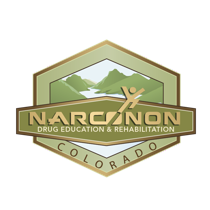Incarceration Doesn’t Stop Addiction: It Creates “Better” Addicts

Reading the local news today I was inundated with stories on local drug arrests, mass long term investigations and centuries worth of jail sentences being handed out by the court systems. This led me to research the correlation between drug use and crime. After researching these statistics, it leaves me asking “When does this stop and when do we realize that the incarceration of our society is not the answer?”
According to a CASA Columbia study, in 2005 Federal, State and local governments spent over $74 Billion on the incarceration and supervision for adult and juvenile offenders with drug-involved arrests. When you compare this to the $632 million, less than 1%, that was spent on prevention and treatment, it is no wonder that our criminal justice system has become a revolving door for those who are experiencing a substance abuse problem. It’s staggering and eye-opening to learn that alcohol was involved in the incarceration of more than 50% of all inmates and that illicit drugs where involved in 75% of incarcerations across America. Individuals find themselves caught in a situation they can’t face, resort to drugs or alcohol to cope, wind up in legal trouble, get sentenced to probation or prison and are given no assistance in handling the underlying issues that lead them to their drug use and the reason why they walked into the courtroom. Add to this the fact that jail or prison can be a school for criminality where many walk in with a drug abuse problem and walk out with a Post-Doctorate in heroin distribution, it is no wonder that the door continues to spin and trap those into a system that offers no solution.
For those that say that it is not cost-effective to provide substance abuse treatment and that incarceration is a cheaper alternative I offer this rebuttal. The study also found that if inmates who needed treatment and aftercare were able to receive these services that the national trend would break in 1 year, even if a mere 10% remained substance and crime-free. This is an additional amount of successful contributing members of society that would give back. Furthermore, it was found that for each former inmate or addict that remained substance and crime-free the U.S. would reap the benefit to our economy to the tune of over $90,000 per year. This means that our nation could not only give assistance to an epidemic that is plaguing our streets, homes and families but could also increase our nation’s economic value and strength as well.
The fact is that there is a tremendous gap between our prisons, inmates and treatment alternatives. The time to fill this gap is now, as addiction and crime statistics continue to rise across the country. Only by providing effective education and substance abuse treatment are we going to resolve this issue and put a stop to the revolving door of our prison system. We owe it to our families, friends and America to stand up and demand that our elected officials stop lining their pockets with kickbacks from private prison systems and fight to get the funding needed to bring about effective treatment to those who need it and resolve the issue once and for all. We can longer condone the caging of our fellow man when a real, workable, beneficial and empowering solution is available.
Written by Chris Red, Narconon Colorado staff member
Sources:

